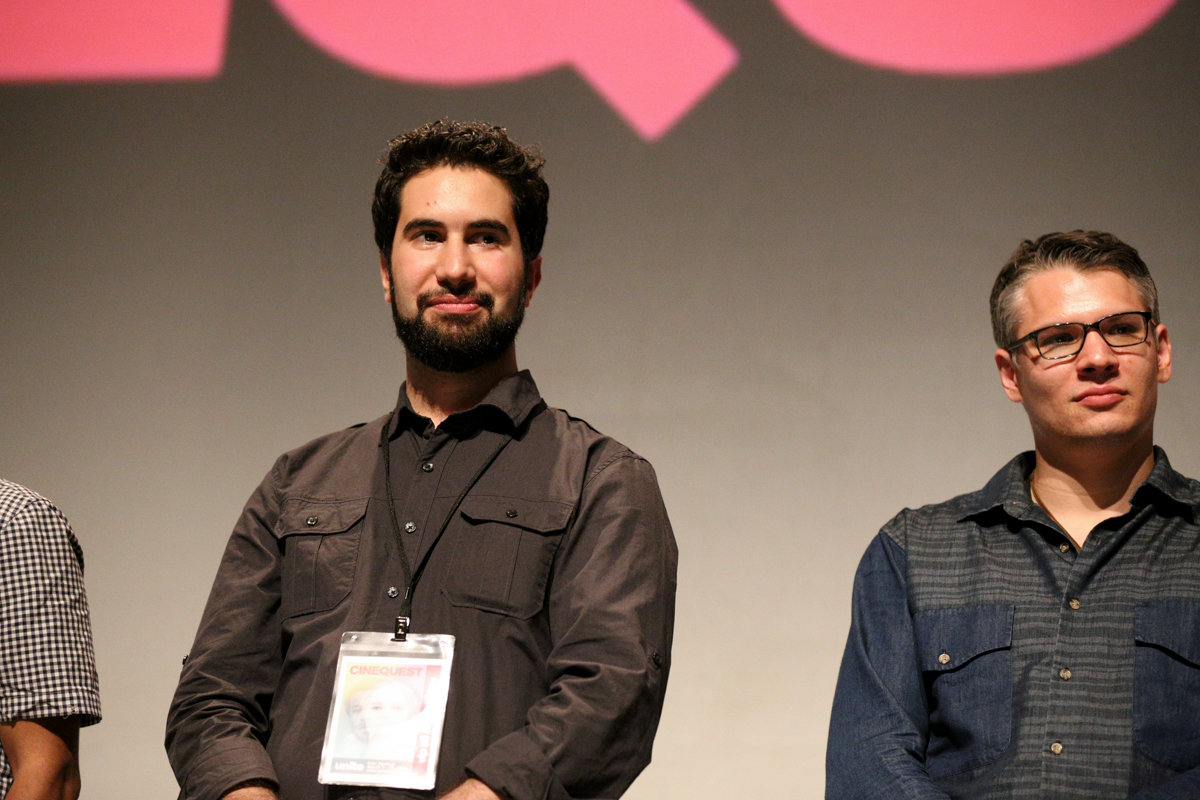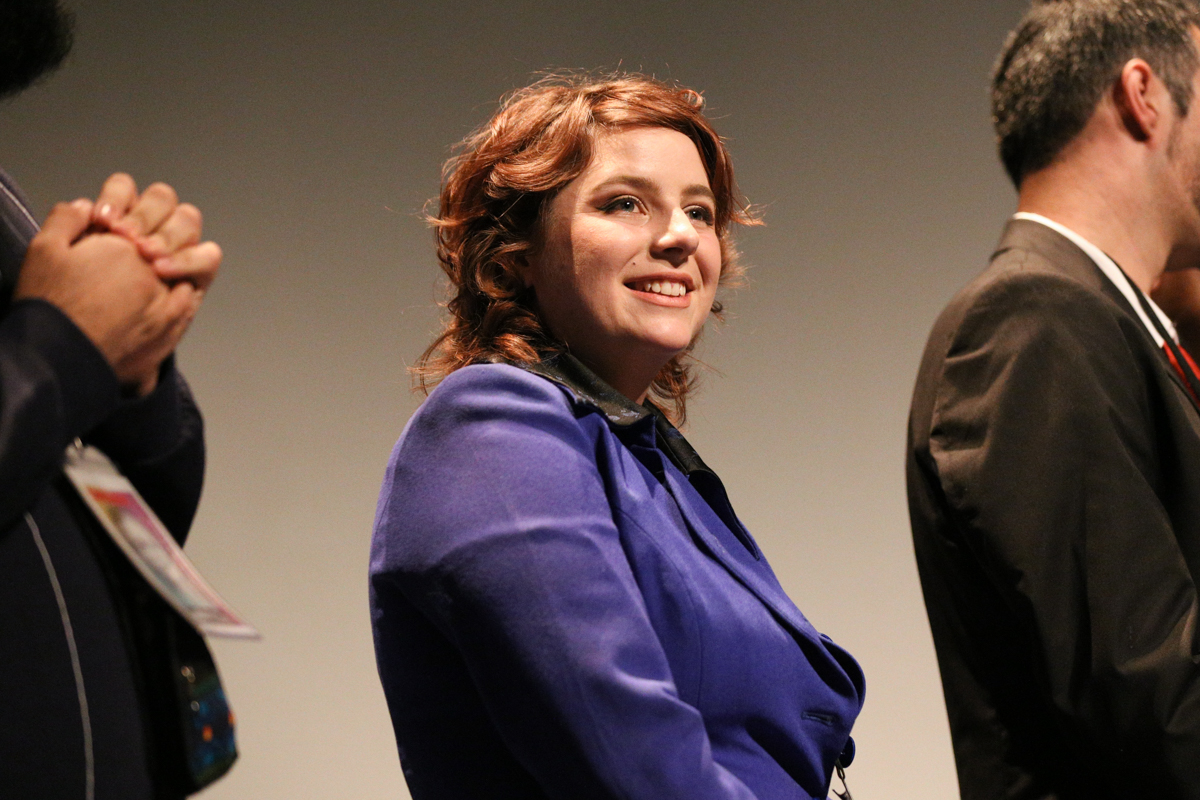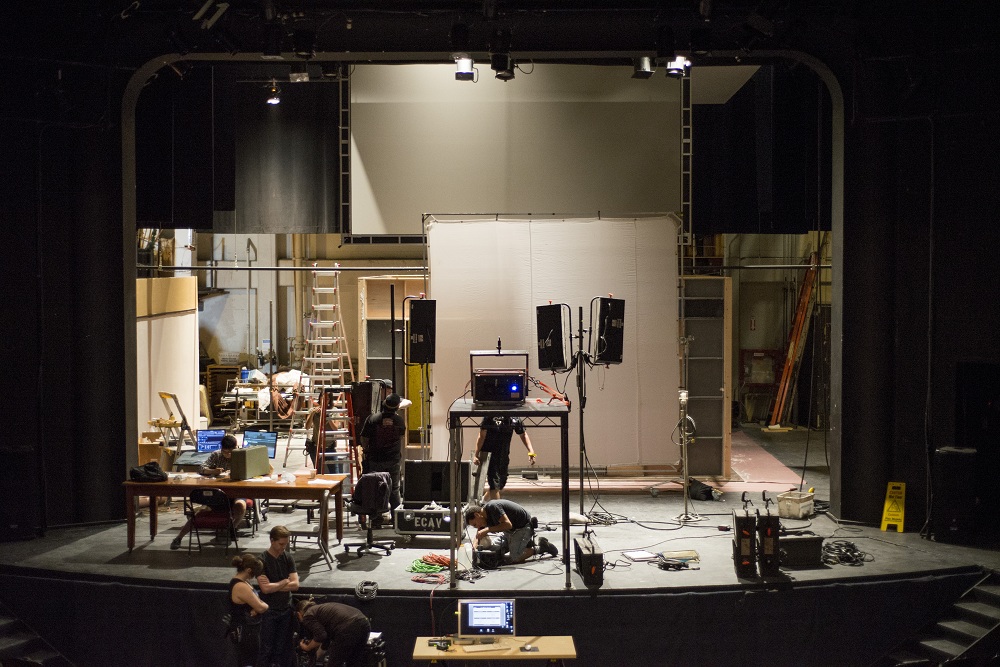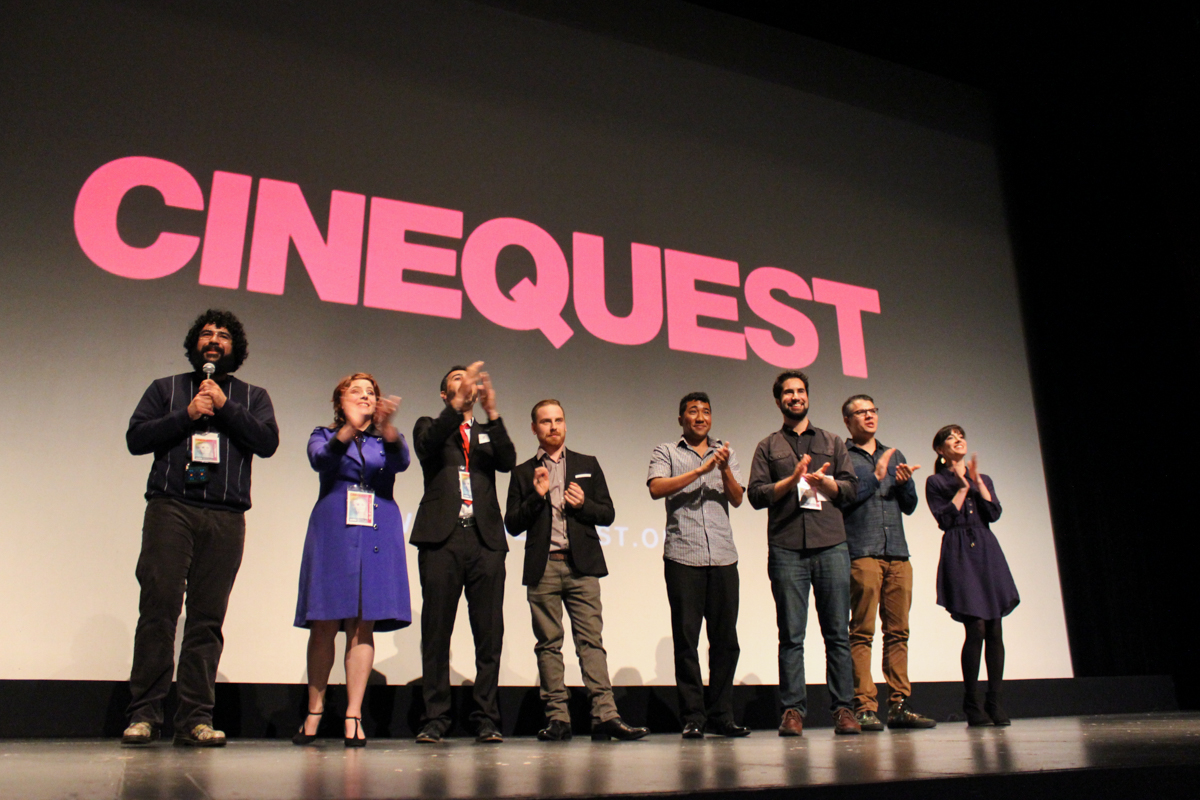
Kourosh Ahari, ’16 Radio, Television and Film, director of “The Yellow Wallpaper” (Photo: Christina Olivas).
Armed with a Cannes Film Festival nod for his short film titled “Malaise” and now two films premiering at Cinequest, a San Jose State student filmmaker has already accomplished more than he expected — and he hasn’t even graduated yet.
Kourosh Ahari, ’16 Radio, Television and Film, premiered his 80-minute feature-length adaption of Charlotte Perkins Gilman’s story “The Yellow Wallpaper” at the grand re-opening of the Hammer Theatre Center on March 2. The event was held in collaboration with Cinequest. The film will be shown again March 12.
Ahari, an Iran native, sowed his passion for directing during his time producing short films, with “Malaise,” his first directing job, premiering at SJSU’s Campus Movie Fest last year.
Ahari enjoys the process of connecting with actors and delving into the depths of human emotions in his role as a director, but wouldn’t have gotten his start in film had he been accepted in SJSU’s impacted animation department.
“‘The Yellow Wallpaper’ is something I’ve always wanted to bring to life as a film, as a motion picture,” Ahari said. “I read the book in college and I was really fascinated with the story itself, like what was happening to women at that point in time when they were overlooked.”

Amy Roberts, ’16 Radio, Television and Film, screenwriter of “The Yellow Wallpaper” (Photo: Christina Olivas).
The story, originally set in the 1800s, chronicles a woman named Eleanor and her struggle to overcome postpartum depression. Living in a newly bought Victorian mansion with her husband, she quickly loses her sanity while locked in her bedroom. There, she begins to become obsessed with the changing patterns of the yellow wallpaper.
Ahari pitched this story as part of his advanced special projects class last spring. SJSU Director of Theater and Film Production Barnaby Dallas suggested Ahari work with a female screenwriter to adapt the story in order to maintain an authentic women’s perspective of how postpartum depression was just one of many issues ignored by society during that time.
“The best writer I had in my screenwriting class was Amy Roberts,” Dallas said. “I introduced Kourosh to Amy and said ‘well, you guys have two or three weeks till the deadline to work on something,’ and they cranked out the script.”
Roberts, who will graduate this year with a bachelor’s in Radio, Television and Film, decided to adapt the script to a more contemporary 1950s setting so themes of female subjugation could still ring true with audiences.
“That’s what impressed me, to have a male student so moved by the story itself and choose to go forward with it,” Roberts said.
During the one-month pre-production phase, Kourosh and his crew built the yellow bedroom set, cast the actors, obtained permits for the Victorian house set and launched into principal photography.
“The shooting part of it was seven days,” Ahari said. “It required working 14 to 16 hours every day.”

Behind-the-scenes building the yellow bedroom set (Photo: Jessica Perez courtesy of Department of Television, Radio, Film and Theatre)
Despite the grueling hours, Ahari said work ethic of his cast and crew is the reason he was able to complete the shooting portion in just a week.
Dallas, who often supervised production days as part of his mentorship role with Spartan Film Studios, said the student crew’s dedication was astounding.
“I’ve been there for 12 hours at a time and see how happy and hardworking these students are,” Dallas said. “If a student director like Kourosh is great like that, it sets the right tone.”
Cinequest is showing Ahari’s film not just once, but twice, with the second showing scheduled for March 12.
“When I heard that our film was the first show premiering (at the Hammer Theatre) it was really exciting and very nerve-wracking because you know it has to be good, so I’m hoping I can get more feedback on the next screening,” Ahari said. “For me, audience is what matters, and when I make a film, I make it so it can resonate with audiences and normal people, and really focus on the human condition.”
Ahari hopes to complete “The Yellow Wallpaper” by May 2016 so he can submit it to Cannes Film Festival.

Kourosh and his crew on stage at the Hammer Theatre (Photo: Christina Olivas).
Following the Cinequest premier of the film, Kourosh and his crew took the stage and invited the audience to critique the film.
A handful of viewers questioned the choice to focus on the mental health theme of the 1892 story, as opposed to the feminist interpretation found in other adaptions.
“Women’s mental health was not something that was faced with any type of gravity,” Roberts responded. “The whole mental issue and the feminist side aren’t completely separate because it all has to do with recognizing an individual’s actual needs.”
